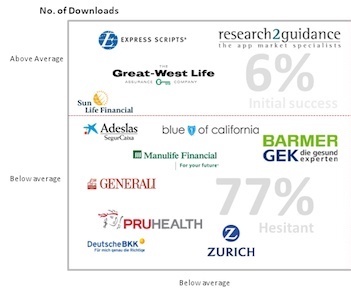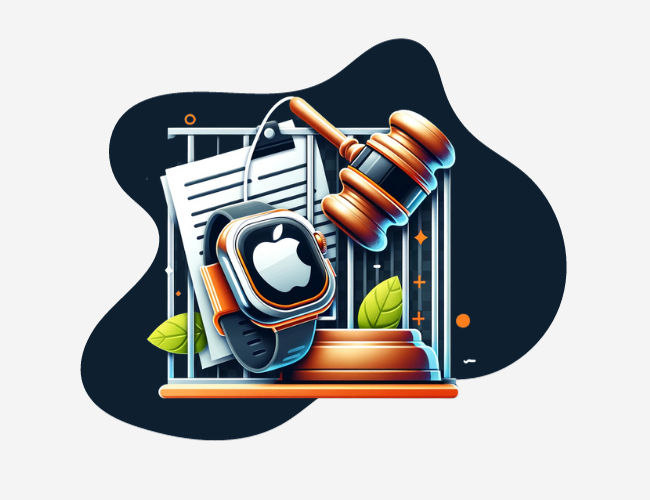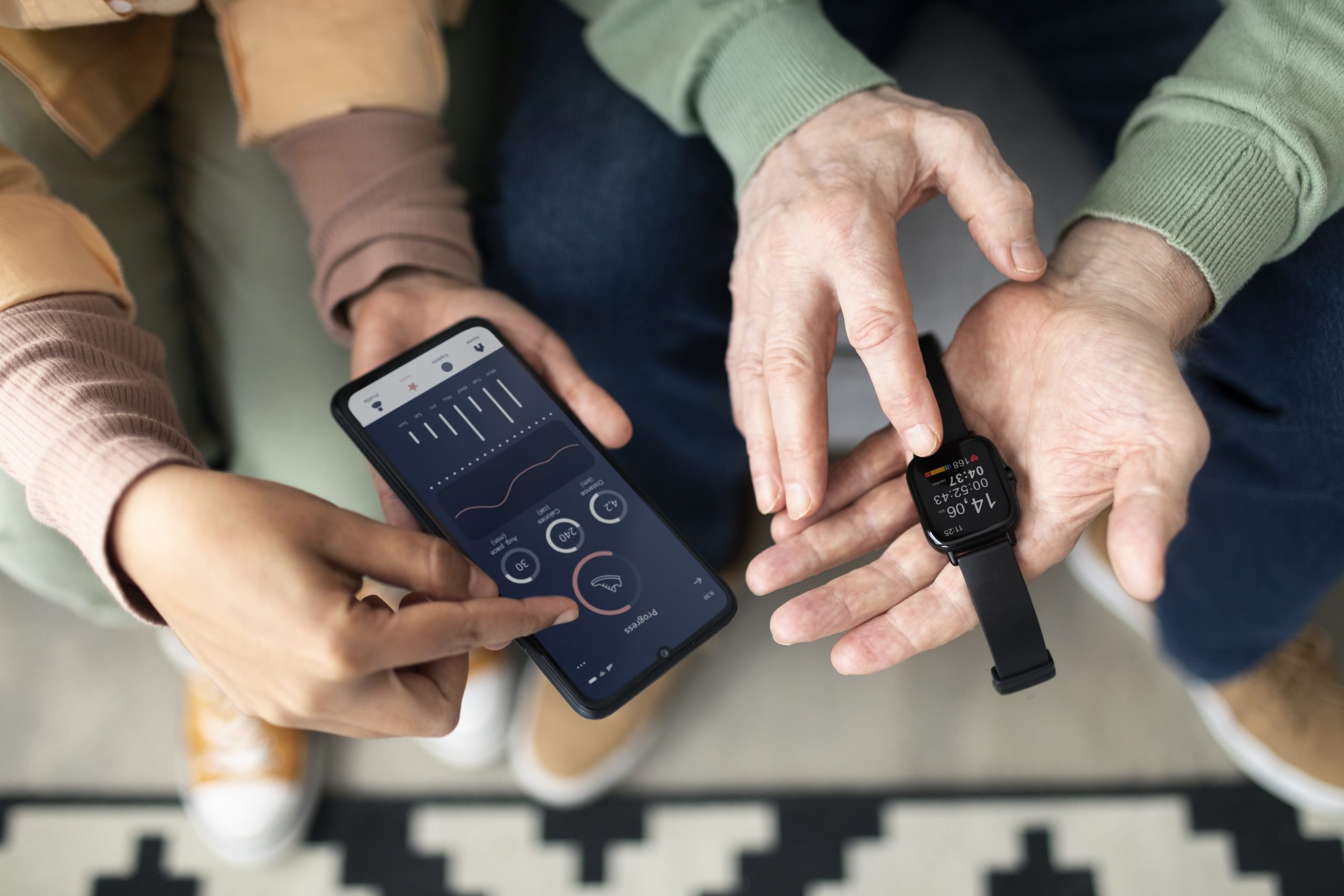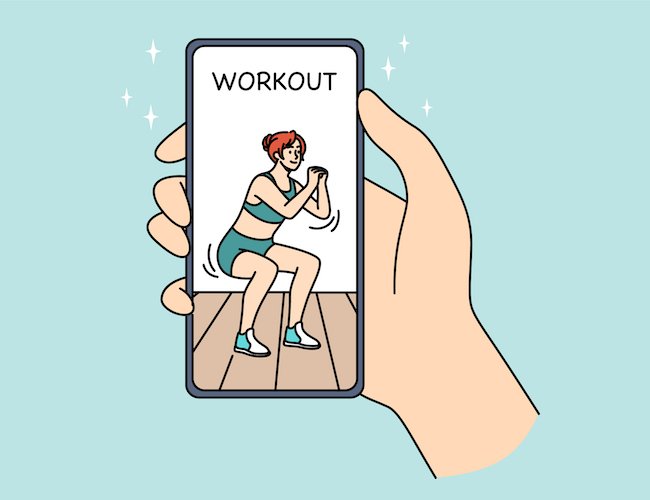A recent report from Research2Guidance delves into the topic of why health plans fail to generate significant reach with their mobile app portfolio. Specifically, 70% of health insurance companies have published only one or two apps and 67% of those companies have achieved less than 100,000 downloads on the apps they do have. As evident in the matrix below, the analyst firm broke app publishing payers down into four quadrants: (i) those with above average downloads and above average numbers of apps (“active”); (ii) those with above average downloads but below average number of apps (“initial success”); (ii) those with below average downloads but an above average number of apps (“still trying”); and (iv) those below average in both categories (“hesitant”).

Aetna is the one health insurance company that stands out. Having published 28 apps across both iOS and Android, Aetna achieved more than 14 million downloads, significantly more than any other health plan. That being said, 85% of those downloads came from just on app within their app portfolio, iTriage. Not surprising, iTriage was originally created by a startup called Healthagen, which was acquired by Aetna, not built in-house.
So why do consumer-oriented apps built by health plans fail? The report suggests three primary reasons:
- Poor Apps – Health plan apps in most cases do not incorporate the 6 key elements of best practice: (i) tracking and coaching; (ii) automated input; (iii) remote consultation; (iv) secure use of mHealth data; (v) integration into the current healthcare IT infrastructure; and (vi) beautiful design and usability. Wellable believes in leveraging the ecosystem of consumer wellness technologies because they produce great apps, which reflect the millions of downloads successful ones have.
- Do Not Embrace Integrated Incentive Schemes – Health plans are best positioned to link financial rewards via incentive schemes to healthy and cost saving behavior of their members. However, currently there are only a few companies that link healthy behavior to financial rewards with the help of an app. Wellable believes in sustainable and associated rewards and integrates this critical feature into its wellness technology platform, making consumer wellness technologies tied to rewards.
- Lack Of Cross-Promotion In App Portfolio – Health plans do not successfully leverage their app portfolio through cross-promotion. Best app publishers manage to have almost equally successful apps in their portfolio by cross promotion using for example, “more apps” screens, pop-ups, and push notifications. This is not being done at all by health insurance companies. Wellable leverages the cross-promotion capabilities of its apps partners as well as supplements their calls to action with additional promotion of Wellable’s app ecosystem.
In many ways, Wellable “enterprises” many of the successful consumer wellness apps and technologies so that they can produce the results that health plans and employers both desire.












